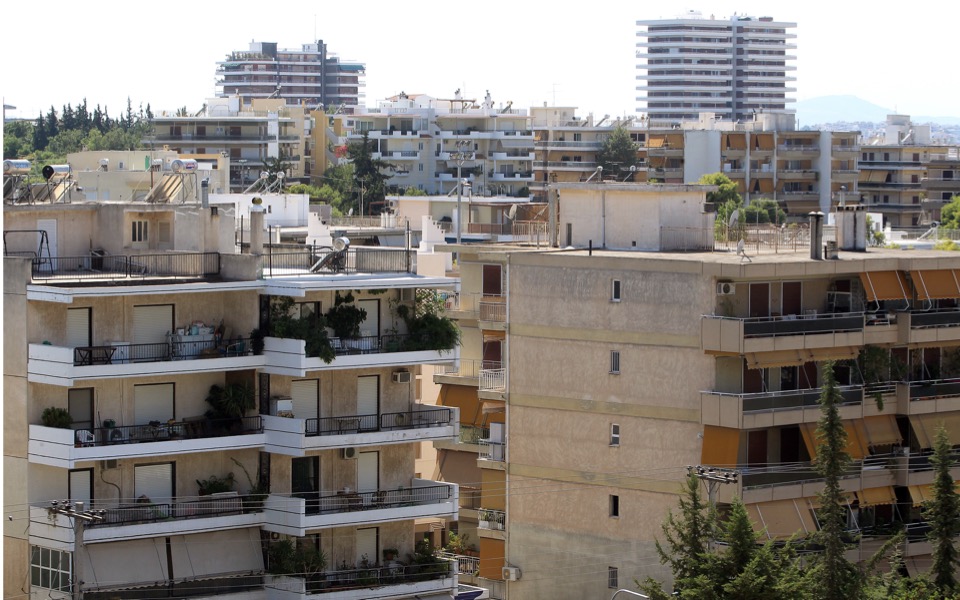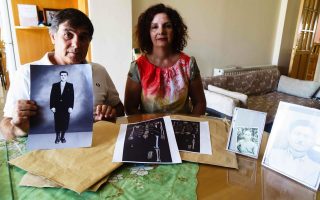Athens an attractive option for Turks looking for a safety net

I arranged to meet Ela Aydogan and Cuneyt Yuzak at the main square in Kolonaki, central Athens. A Turkish couple had just bought an apartment on Karneadou Street and they were going to a bank to help the new homeowners to open an account. “It’s the most time-consuming part of the job,” said Yuzak. Both permanent residents of Athens, they have mediated in the sale of 49 properties to Turkish nationals over the past few months.
The day before I had met with another woman from Turkey. She had sold eight properties to friends and acquaintances in the past six months. She did not want to reveal her identity as, she said, she has relatives in Istanbul. “Obviously I’m not doing anything illegal but there’s always a sense of ‘you never know.’ Some people have been persecuted for making a simple comment on Facebook,” she said.
She got the idea in 2015 while talking to a friend who works in real estate, specializing in the sale of properties to clients from Arab countries. “Why don’t you do the same with your people?” she had said to her, but the idea did not appeal to her at first. “I didn’t feel it was right. If I had told them that it was good idea, which at the time it wasn’t, they would have trusted me,” she said. “For some strange reason lots of Turks had no idea that [Greece] had been at risk of leaving the European Union,” she said, adding that, “of course, a year later, everything changed.”
She is aged around 50 and has been living with her family in Athens for many years. On the night of the attempted military coup in Turkey last July, she stayed awake, fretting about her relatives and friends. “I wanted them all to come to Greece,” she said. “I was worried about their safety, about what would happen.”
A few weeks later she got a phone call from a friend. “I’m concerned about the situation. I want you to help me find a house,” he said, and they arranged to meet in Athens.
When he came, he told her he did not intend to stay, at least not immediately, but that he wanted to have the choice in case things got a lot worse.
The two of them sat for hours talking about the death of the Turkey they knew and loved, about mass persecutions, about the Islamification of education, about the general sense of fear permeating life in the country.
That weekend they viewed some properties in the northern suburbs of Athens and he ended up buying a property in Kefalari for 250,000 euros. As a result, that Turkish citizen and his family ended up entering the Golden Visa program, which secures them a residence permit in Greece for a whole year and in other European countries for a few months.
For Aydogan and Yuzak, their professions in Greek real estate started a few months before the attempted coup in Turkey. Aydogan had moved to Athens with her family in 2014 and since then has helped the families of many friends and acquaintances who wanted to do the same. One of those families was Yuzak’s. “I left because I wanted my children to grow up in a more international environment,” he said. With Aydogan’s help, he found a house and a school for his son. The two became friends and one day, over coffee, they decided to go into business together.
There have been few weekends in recent months that they haven’t met a potential buyer at the airport. They accompany the would-be homeowners on visits to lawyers, accountants and real estate agents, and take them out for dinner or host them at their homes.
“I remember the second week of February, when the schools in Turkey were closed, we had seven families here,” he said. “We had taken up three tables at a cafe and, with the help of real estate agents and the lawyer, we were trying to help them all at the same time.”
I asked how many of the families ended up buying properties.
“All seven,” he told me. “Anyone who has come to Athens to see us has left with a contract.”
Noting my surprise, Yuzak explained further: “Every 10 days I go back to Turkey and meet prospective buyers there. Of those, only 25 percent end up coming to Athens, and they are decided.”
“As for the rest, a large proportion want to come but can’t, at least not yet,” he added. “They are either waiting to sell property to raise the money [the property market in Turkey is frozen] or they are just waiting to see what will happen following the referendum in April.”
As we were speaking, the couple that had just bought the property on Karneadou Street came out of the bank. They are both bankers, aged around 40. Some friends had bought a flat in Athens and so they found themselves here in January. They viewed 10 properties, chose one and went back to Istanbul in the belief that the deal had been sealed. However, the sellers came back to them a few days later and told them that the price had changed. “Unfortunately it happens a lot,” Yuzak said. “Lots of Greeks see foreigners and try to make an extra profit. We protect them from those kind of tactics and traps.”
The couple see their purchase as an investment but they also love Greece and might end up retiring here, they told me. They said they had already booked an apartment on Paros in July for their summer holidays. “A year after the coup,” I remarked. They didn’t respond and the subject was quickly changed.
Later, the Turkish woman who agreed to talk anonymously told me that no one talks openly about politics in Turkey with someone unless they know them very well. Indeed, there are some who demand utter discretion for their purchase in Greece.
Golden Visas
Of the 57 Turkish nationals who have bought property with the help of the three Turks interviewed by Kathimerini, only 12 have obtained their Golden Visa. The rest are still waiting for the procedure to be completed.
So far the process has been completed for a total of 49 properties and a corresponding 128 residence permits for Turkish owners and their relatives.
Most of the above bought properties worth 250,000 euros. There are exceptions though. One bought the property housing Public Power Corporation offices on Mesogeion Avenue for 850,000 euros. Then there are those who are looking to buy a hotel in central Athens for up to 1 million euros and a businessman who is looking for a 4,000 square meter warehouse to accommodate his business as his foreign clients do not want to travel to Turkey.
The job of the three Turks I met is not just to sell properties that will secure Golden Visas for the buyers.
“Up until now, only two families have moved, but we know another six who are waiting for the school year to finish before coming over,” Yuzak said. “We help them with whatever they need, from installing a satellite dish so they can get Turkish channels, to choosing a school.” He is already involved in organizing activities for this new community that is being created in Athens.
The woman who spoke anonymously to Kathimerini has similar thoughts. She is putting together a team that will be able to manage the properties she sells. “Up until now, all the buyers are friends and have chosen properties in the same neighborhood,” she said. “In fact there is a certain restaurant they like and they want to be near that.”
“I think they all have in mind that one day, maybe soon, they might end up moving here,” she added.





